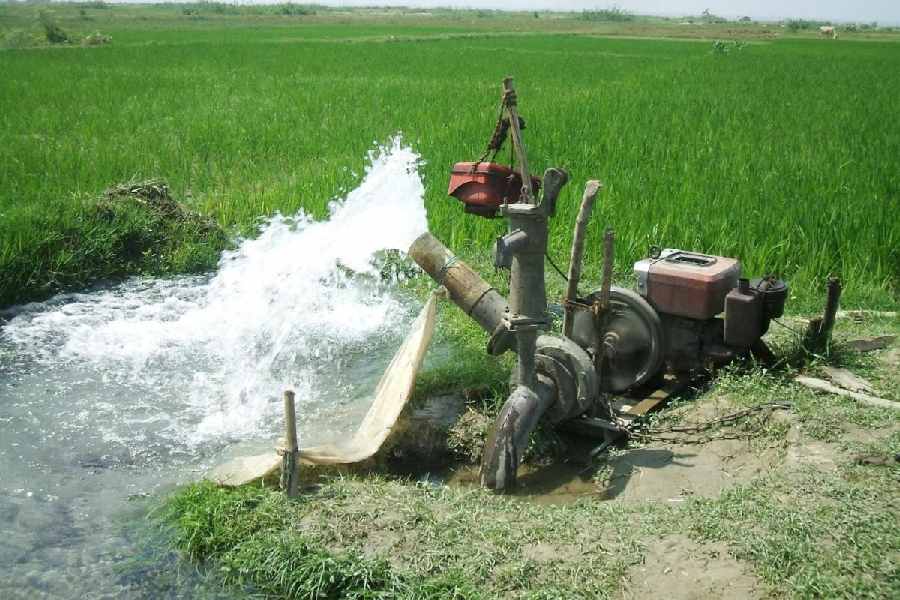India’s farm output subsidies that guarantee the government purchase of rice and wheat at prices higher than market rates are contributing substantially to the country’s declining groundwater reserves and threaten long-term sustainable agriculture, researchers have cautioned.
Their study has estimated that output subsidies have led to a 30 per cent overproduction of rice and wheat — both water-intensive crops — and excess groundwater extraction that some environmental scientists fear could push India’s grain-basket states towards desertification.
“Most, if not all, subsidies are well-intentioned. However, the costs they have come to impose on the environment have broadly been ignored in policy design,” Esha Zaveri, an environmental economist with the World Bank in Washington DC who led the study, told The Telegraph.
Zaveri and her collaborators focused on two states — Punjab and Madhya Pradesh — with different groundwater regimes.
Punjab is part of the thick northern alluvial plains where wheat and rice have been cultivated for decades. Here, groundwater levels have fallen by over eight metres on average and even up to 30 metres in some regions. Madhya Pradesh, in central India, has hard rock aquifers where wells get depleted and replenished annually.
The average groundwater depth in Punjab fell by about 100 per cent between 1981 and 2015. The post-monsoon groundwater depth, for instance, dropped from about 5 metres below ground level in the early 1980s to 10 metres below ground level by 2015.
The study, published earlier this month in the journal Nature Communications, has suggested that the increased rice cultivation, induced by government procurement of rice, may have accounted for at least 50 per cent of the fall in groundwater levels in Punjab over that period.
In Madhya Pradesh, government procurement of wheat appeared to have expanded wheat cultivation. Between 2000 and 2007, the area under wheat cultivation in Madhya Pradesh grew at 3 per cent annually. It nearly doubled to 5.8 per cent annually between 2008 and 2015 after the state government in 2008 announced a bonus on top of the national minimum support price.
Government wheat procurement in Madhya Pradesh increased by nearly 70 per cent between 2007 and 2016. The study has found that, alongside that procurement, the incidence of dry wells increased by 5.3 per cent and the need for deep tubewells increased by 3.4 per cent over that period.
The thick alluvial groundwater layers in northern India are potential buffers against any aberrant weather behaviour induced by climate change and take centuries to recharge. The researchers have cautioned that groundwater depletion there has exposed India’s most productive agricultural regions to the possibility of desertification.
“Policymakers in India should consider rethinking how they provide subsidies to farmers and consumers for securing their own future,” Zaveri and her colleagues, Shoumitro Chatterjee at the Johns Hopkins University School of Advanced International Study and Rohit Lamba at the department of economics at Cornell University, wrote in their study.
Governments could consider implementing policies that compensate farmers for income losses from market volatility and strategies that enhance farmers’ resilience against climate change, the researchers said.
“Policy design should balance direct subsidies with funds for agriculture innovation and research,” they wrote, while acknowledging that “successfully moving away to alternative systems will require trust-building and convincing farmers that alternative systems of support and subsidies that are not linked to water-intensive crops can work”.
“The most formidable resilience against climate change will come from new technology,” Zaveri said.
While the Indian Council of Agricultural Research has a nationwide network of laboratories involved in climate-resilient farming, she said, “they and other agricultural universities need more resources to do better work”.
“To that end, we need to step up investments in agriculture research,” Zaveri said.











